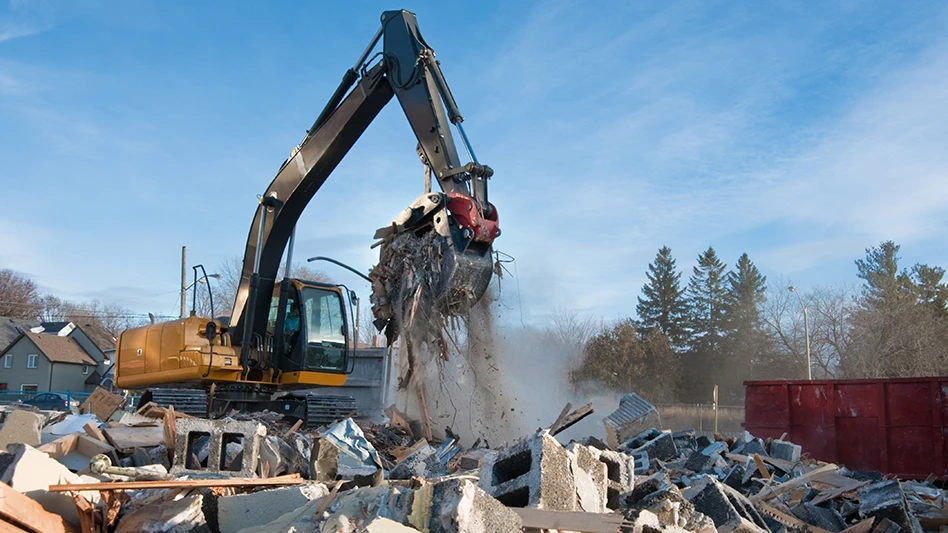
dell | stock.adobe.com
The waste collection industry relies on a well-functioning fleet to ensure timely and efficient service. The demanding nature of waste management operations places significant strain on vehicles, leading to wear and tear that can result in costly downtime if not properly managed. Preventive fleet maintenance plays a crucial role in minimizing these disruptions by proactively addressing potential issues before they lead to equipment failure.
By implementing a structured maintenance program that includes regular inspections, scheduled servicing and adherence to fleet compliance services, waste collection companies can significantly enhance vehicle reliability, optimize performance and maintain operational efficiency.
The importance of preventive maintenance in waste collection
Unlike reactive maintenance, which addresses breakdowns as they occur, preventive maintenance focuses on proactive servicing to keep vehicles in optimal condition. Given the intensive usage patterns of waste collection trucks—frequent stops, heavy loads and exposure to harsh environmental conditions—routine maintenance is essential to ensuring continued functionality. Preventive measures include oil changes, brake inspections, tire rotations and hydraulic system checks, all of which help to extend vehicle lifespan and prevent unexpected failures.
By investing in preventive maintenance, waste collection companies can experience several key benefits:
Reduced unexpected downtime: Regular servicing minimizes the likelihood of sudden breakdowns, preventing costly service interruptions.
Lower repair costs: Addressing minor issues early prevents them from escalating into more expensive repairs or replacements.
Enhanced safety: Well-maintained vehicles are less likely to experience mechanical failures that could lead to accidents.
Regulatory compliance: Adhering to fleet compliance services ensures that vehicles meet environmental and safety standards.
Increased operational efficiency: When fleets operate smoothly, collection schedules remain on track, improving overall service reliability.
Key components of a preventive fleet maintenance program
A comprehensive preventive maintenance program includes multiple components, each designed to address specific areas of vehicle health. By incorporating these elements into routine servicing, waste collection companies can significantly reduce downtime and optimize performance.
- Regular inspections
Routine inspections are the foundation of preventive maintenance. Waste collection vehicles should undergo daily pre- and posttrip inspections to identify any immediate concerns. Drivers should check for signs of leaks, tire damage, brake issues and any unusual engine noises before beginning their routes.
More in-depth inspections should be conducted on a weekly or monthly basis by maintenance professionals. These assessments often include engine diagnostics to identify performance concerns before they escalate, brake system checks to prevent failures that could compromise safety and hydraulic system inspections to verify the proper function of lifting mechanisms. Technicians also measure tire pressure and tread depth, which helps reduce uneven wear, improve fuel efficiency and extend the life of the tires. - Scheduled servicing and component replacements
Following a structured maintenance schedule helps ensure that waste collection trucks remain operational and efficient. Key scheduled maintenance tasks are essential for preserving vehicle performance and preventing costly breakdowns. These include oil and filter changes at manufacturer-recommended intervals to keep engines running efficiently, as well as transmission servicing to prevent shifting issues and extend the life of the gearbox.
Regular cooling system maintenance helps avoid overheating, which can cause serious engine damage if left unaddressed. Suspension system inspections are also important, as they enhance vehicle stability, reduce wear on other components and contribute to a smoother ride—ultimately helping to minimize driver fatigue during long routes. By replacing critical components before they fail, companies can prevent costly breakdowns and maintain uninterrupted waste collection services. - Monitoring fleet performance through telematics
Modern waste collection fleets benefit from telematics systems, which provide real-time insights into vehicle health. These systems utilize GPS tracking and onboard diagnostics to monitor engine performance and fuel efficiency, brake wear and overall vehicle handling, as well as idle time and route optimization.
By collecting and analyzing this data, telematics enables fleet managers to detect potential problems early, prioritize maintenance schedules and make informed decisions that reduce unexpected downtime. This technology not only improves operational efficiency but also contributes to cost savings and extended vehicle longevity.
Reducing unexpected breakdowns with proactive measures
One of the primary goals of preventive maintenance is to reduce unplanned vehicle breakdowns, which can disrupt collection schedules and increase operating costs. Several proactive measures can help waste collection companies mitigate these risks:
- Implementing a predictive maintenance approach
Predictive maintenance takes preventive servicing a step further by using data analytics and diagnostic tools to anticipate failures before they occur. By tracking engine performance trends, brake wear patterns and hydraulic system behavior, fleet managers can schedule maintenance based on actual vehicle condition rather than fixed intervals. This approach maximizes vehicle uptime while minimizing unnecessary servicing costs. - Training drivers to identify early warning signs
Drivers play a crucial role in fleet maintenance, as they are often the first to notice potential issues. Training programs should educate drivers on recognizing warning lights and dashboard alerts, reporting unusual vehicle noises or performance irregularities and conducting thorough pre- and post-trip inspections.
Encouraging drivers to communicate potential problems early helps maintenance teams address minor issues before they escalate into major repairs. - Maintaining a comprehensive service history
Keeping detailed records of all window repair, tire replacements, brake servicing and hydraulic system checks allows fleet managers to track vehicle performance over time. These records help identify recurring issues, improve maintenance planning and ensure compliance with fleet compliance services regulations.
In addition to reducing downtime, preventive maintenance helps waste collection companies adhere to industry regulations and safety standards. This includes regular emissions testing to meet environmental guidelines, thorough inspections of brake and lighting systems to promote road safety and adherence to Department of Transportation (DOT) requirements for ongoing vehicle maintenance.
Failure to comply with these regulations can result in fines, legal liabilities and operational disruptions. A well-maintained fleet not only operates more efficiently but also avoids costly compliance violations.
The long-term financial benefits of preventive maintenance
Investing in preventive fleet maintenance offers significant cost savings in the long run. While some companies may view routine servicing as an added expense, the financial benefits outweigh the initial costs.
- Lower repair and replacement costs
Addressing minor issues before they become major failures reduces the likelihood of engine breakdowns, transmission failures and costly component replacements. Preventive maintenance extends the lifespan of waste collection trucks, minimizing capital expenditures on new vehicles. - Improved fuel efficiency
Well-maintained engines, properly inflated tires and optimized routes contribute to better fuel economy. By reducing fuel consumption, companies can lower operating costs while minimizing their environmental impact. - Enhanced service reliability and customer satisfaction
A reliable fleet ensures consistent waste collection schedules, reducing missed pickups and service delays. This reliability enhances customer satisfaction, strengthens business reputation and helps secure long-term contracts with municipalities and private clients.
Maximizing fleet efficiency and reliability through preventive maintenance
Preventive fleet maintenance is essential for reducing downtime in the waste collection industry. By implementing regular inspections, scheduled servicing and advanced telematics, waste management companies can improve vehicle reliability, enhance safety and maintain fleet efficiency. Additionally, compliance with fleet compliance services ensures adherence to industry regulations, minimizing the risk of fines and legal issues.
A well-maintained fleet not only reduces operating costs but also improves service reliability and customer satisfaction. By prioritizing preventive maintenance, waste collection companies can optimize their operations, extend vehicle lifespan and maintain a competitive edge in the industry.
Sam Kraft is content and communication manager at Whip Around, a Charlotte, North Carolina-based fleet maintenance and management company. Kraft brings 13-plus years of copywriting experience to Whip Around, where he’s immersed in “all things fleet” on a daily basis. He’s the go-to guy for fleet technology insights, breaking down industry trends and making sure fleet managers get the information they need to keep their equipment safe, compliant and productive.
Latest from Waste Today
- Republic Services says Teamsters mediation to resume Tuesday
- Reworld partners with Mystic Aquarium
- Michigan county issues notice to waste hauler over pickup delays
- OC Waste & Recycling wins 4 national awards
- AMCS appoints general manager for North America
- Philadelphia strike ends as city workers reach tentative deal
- Cards acquires National Waste of Tulsa, Oklahoma
- Sunshine Canyon Landfill deploys biocover technology trial





